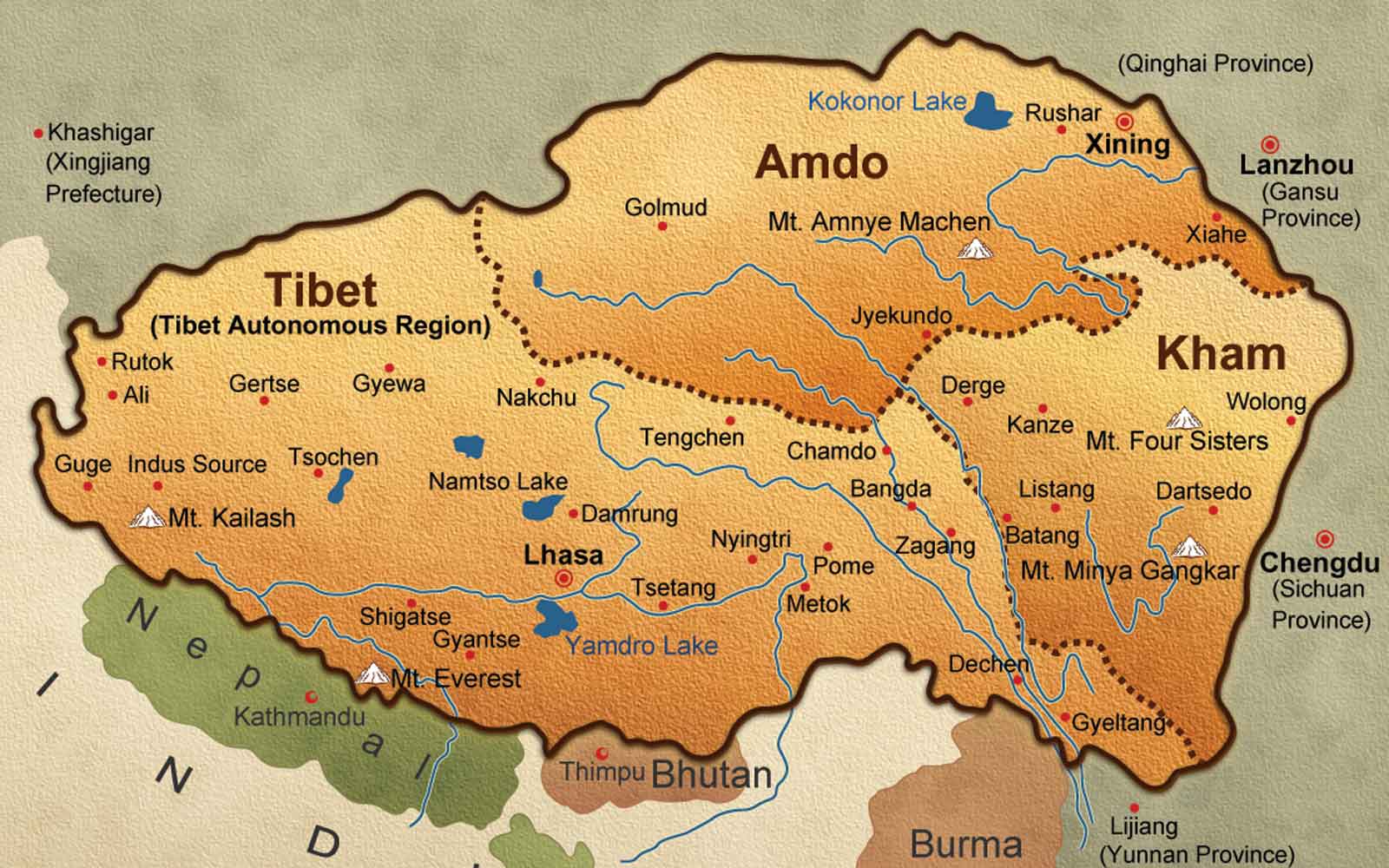Do you want to know what is the most difficult language I've been learning so far? Well, yes, it's Tibetan. It has complicated grammar, orthography, pronounciation... Completly new alphabet and lots of rules to remember. I'm giving it... 4,5/5 on the difficulty scale. That's one of the reasons why you should be even more motivated to learn it! Satisfaction guaranteed.
Tibetan comes in many varying dialects used in different parts of the country but we're going to focus on Lhasa dialect (also called Central Tibetan dialect) which dominates in Central Tibet.
 |
| Tibet and it's regions |
A'Gee's Tibetan issues list:
1. Alphabet: Uchen script is used to write in Tibetan. Basically, there are 30 letters and some more additional symbols and it's not difficult to remember those. However, it's more difficult when it comes to ...
2. Pronuniation: Usually you write a word in one way and read it in another way. There are many rules for that and we'll look at them later. There is also good news - most of the sounds in Tibetan are similar to English so you shouldn't have problems with that.
3. Orthography: Many word that have different meanings are pronunced in the same way and you need a context to understand them. It's worth to note that often even Tibetans don't know how to write properly - only the most educated people can do it and there are not much of them.
4. Grammar: Well, it seems really complicated at the beggining: there are different cases, the sentence structure is completely different from English and so on but when you get used to it you may even find it easy.
4. Tones: Don't be scared- there are only 2 tones in Tibetan: high and low. In fact, if you make a mistake and use the wrong tone you should still be understood by the Tibetans ;)
Summing up, I wouldn't say that Tibetan is easy but it certainly is pleasurable. If you listen to the song below, you'll get the hint! ;)

